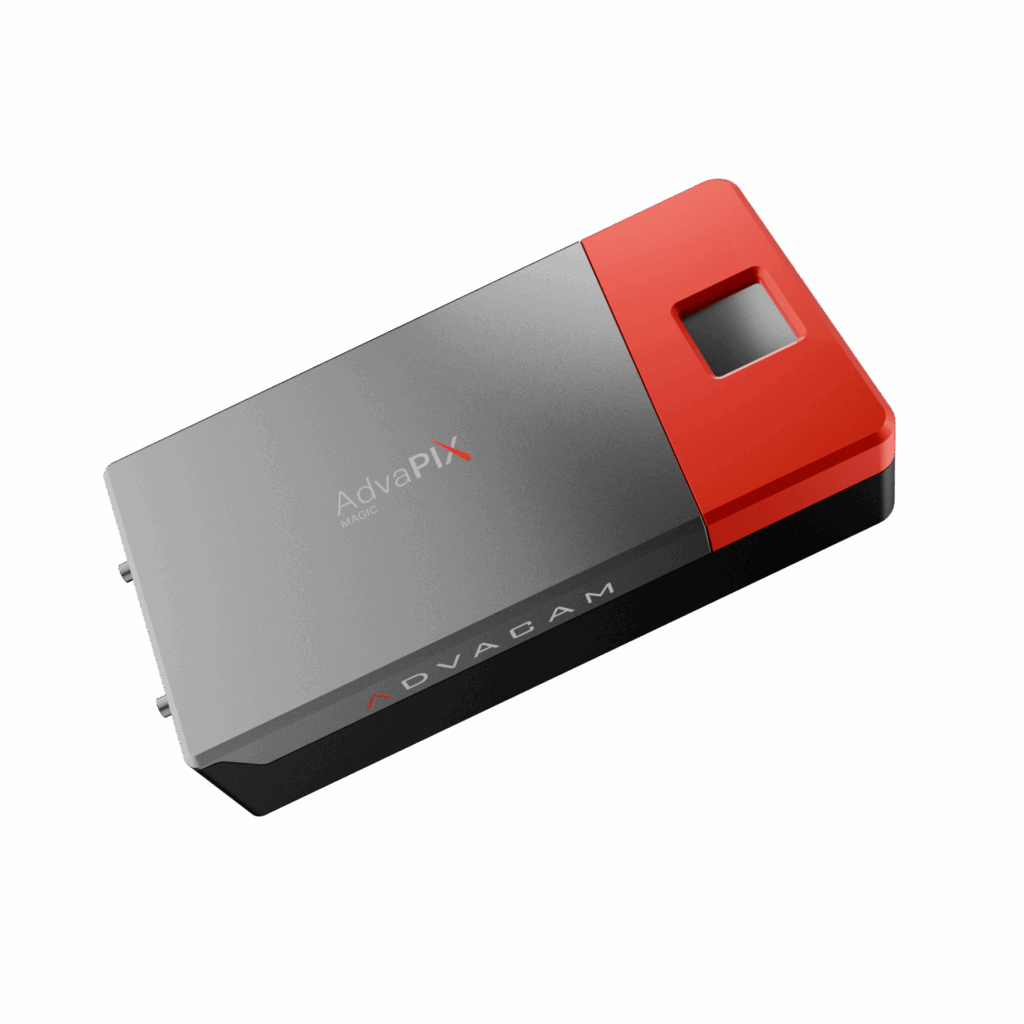A precise and fast radiation particle-tracking detector with Timepix3 chip. It records each radiation hit, enabling superior resolution, speed, and ionizing radiation detection possibilities.



A precise and fast radiation particle-tracking detector with Timepix3 chip. It records each radiation hit, enabling superior resolution, speed, and ionizing radiation detection possibilities.
| Readout chip: | Timepix3 |
| Sensitive area: | 14 x 14 mm |
| Time resolution: | 1.6 ns |
| Readout speed: | 38 Million hits/s |
| Number of pixels: | 256 x 256 |
| Pixel pitch: | 55 μm |
| Energy Resolution: | 1,2- 9,9 keV |
| Min Detectable Energy: | 3 keV for X-rays |
| Dimensions: | 125 x 79 x 25.5 mm |
| Weight: | 503 g |
| Connectivity: | USB 3.0 (Super-Speed) |
| Software: | PIXet Pro |
We have many references of implementing our cameras.
Discover all possibilities of Advacam cameras from real life case studies. Contact us and request our references.